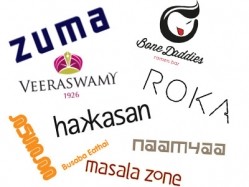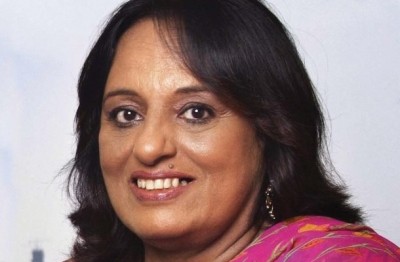Exclusive: UK restaurants serving world cuisines facing danger of 'slow death'

The stark warning came as businesses joined together to address a team from the Migration Advisory Committee (MAC) which has been tasked by the Government with reviewing the current immigration rules.
MAC will report back to the Home Office at the end of January next year and may recommend removing skilled chefs from the occupation list or setting a 'sunset clause' meaning certain jobs would drop off the shortage list after around two years.
If the Government decides to make any changes, UK restaurants would face not being able to employ any chefs from countries outside the European Economic Community (EEC).
Misconceived
However in a showdown with the agency, Ranjit Mathrani, chairman of Indian restaurant group MW Eat, warned the idea that there would ever be a time when leading world cuisine restaurants would not need to bring in chefs from abroad was 'manifestly misconceived'.
Mathrani, whose company operates the Masala Zone chain, Veeraswamy, Chutney Mary and Amaya restaurants, said: "High levels of culinary techniques are a product of a combination of years of appreciation of taste and years of appreciation of cooking skills."
"We have gone on the record as saying we are stopping expanding in the UK entirely and solely because of the UK’s immigration policies. This applies to all specialised restaurants. The specialised sector is now facing a slow death."
At the meeting last week, arranged by visa assistance company Visalogic and law firm Jeffrey Green Russell, there was a consensus among some of the restaurant groups that any changes would stop the growth of current brands, prevent new concepts from being launched and impair the tax and employment benefits that the sector brings.
Jale Erentok, managing director, Busaba Eathai
"We are opening another concept (Naamyaa) that doesn’t totally rely on ethnic chefs. We have found a clever way of doing it but it is diluting the whole experience.
"We are concentrating on China and the Middle East. It is as simple as that. Instead of trying to open 10 restaurants in the UK I can’t get a chef or I have to get a chef from another company for so much money that it doesn’t make sense.
"We were going to bring more Asian operations to this country – we can’t do it."
Ross Shonhan, founder, Bone Daddies
"As you teach staff one type of Japanese cuisine they get pulled to another restaurant because that industry is a massive growth area so you are always going to need more people with experience and knowledge to come in to keep feeding that growth.
"To say in two years ‘you have had enough time now stop’, you kill that growth. It is as simple as that.
"You can’t teach someone how to teach that knowledge and experience - it takes years - and if you go from having five restaurants to 15 you need three times as many people."
Impossible
Currently skilled chefs are described as being in short supply, allowing UK companies to employ executive or head chefs from outside Europe with a minimum annual pay of at least £28,260. However this will become impossible if the Government chooses to edit the list.
Furthermore as the role of chef is described as being skilled to the NQF4+ level and not NQF6+, the second option of an employer 'sponsoring' a potential employee from outside Europe and taking a resident labour market test would not be open.
This would mean if the occupation is removed from the shortage list restaurants will not be able to employ any chefs from outside the EEC.
Hospitality and restaurant businesses now have until the end of November to give their views to MAC before the body reports back to the Home Office.
While the industry will not need to prove the job of a high-level chef is skilled, restaurants will need to give evidence such as employer surveys or lists of vacancies to prove there is a national shortage of chefs which can't sensibly be solved by employing people in the UK or from elsewhere in Europe.






































